Kizer’s Recent Edition to Their High-end Collection is a Sleek Utility Blade with a Pocket Clip Issue
Key Takeaways
- It’s a fine-slicing knife with excellent edge retention.
- The fit and finish are excellent; It feels like a more expensive knife.
- Good price for titanium and S45VN steel.
- It’s a great utility blade; the blade and edge geometry make it a pure-bread box cutter
- The pocket clip does not leave enough clearance to carry easily in most pants pockets.
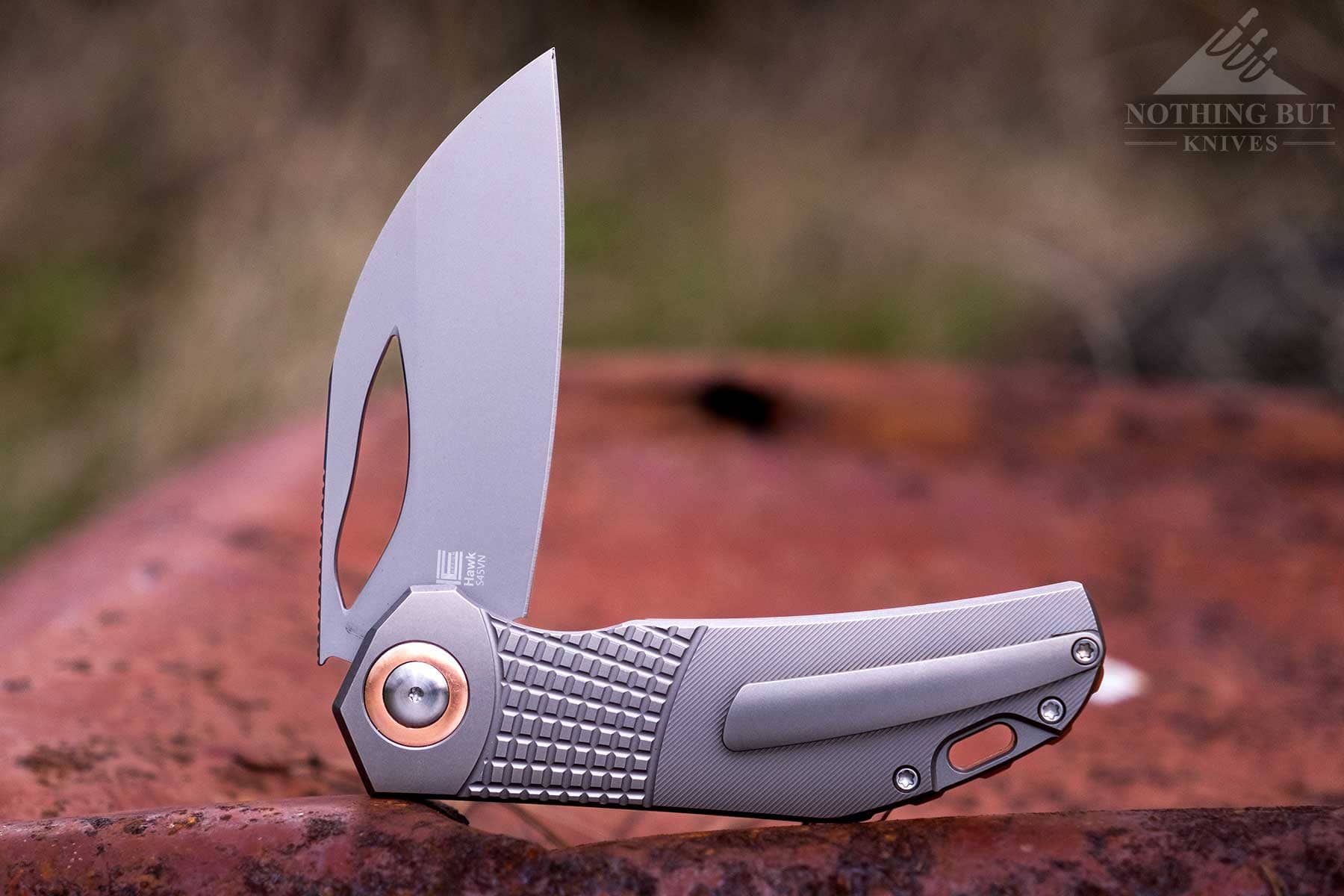
Titanium flippers aren’t my style, but a lot of good things aren’t my style. Everyone keeps telling me sushi is good, but no matter how many times I try and admit to liking a tuna roll, the fact remains that, left to my own devices, I will order something that’s been cooked and used to walk on land.
The Hawk is a little bit of a sushi roll in that it has the look of something all Americans think is kind of classy, is technically impressive, but has some logistic issues that take getting used to.
Specifications
| Overall Length: | 7.98” |
| Blade Length: | 3.41” |
| Blade Steel: | CPM-S45VN or M390 |
| Hardness: | 60 – 62 HRC |
| Open System: | Flipper tab or thumb hole |
| Blade Thickness: | 3.0 mm (0.12”) |
| Blade Shape: | Sheepsfoot |
| Blade Grind: | Flat |
| Pocket Clip: | Milled titanium (right side only) |
| Handle Material: | Titanium |
| Lock Type: | Liner |
| Weight: | 119 g (4.2 oz) |
| Designer: | Carlos Elstner |
| Made in: | China |
Pros & Cons
| What I Liked | What I Didn’t Like |
|---|---|
| Great edge geometry on a tall blade | Not enough room under pocket clip for most pants |
| Roomy grip that reasonably comfortable | Titanium handle can feel harsh sometimes |
| Butter-smooth action | |
| Heavily textured portion of handle helps the grip a lot |
Fit, FInish, and Action
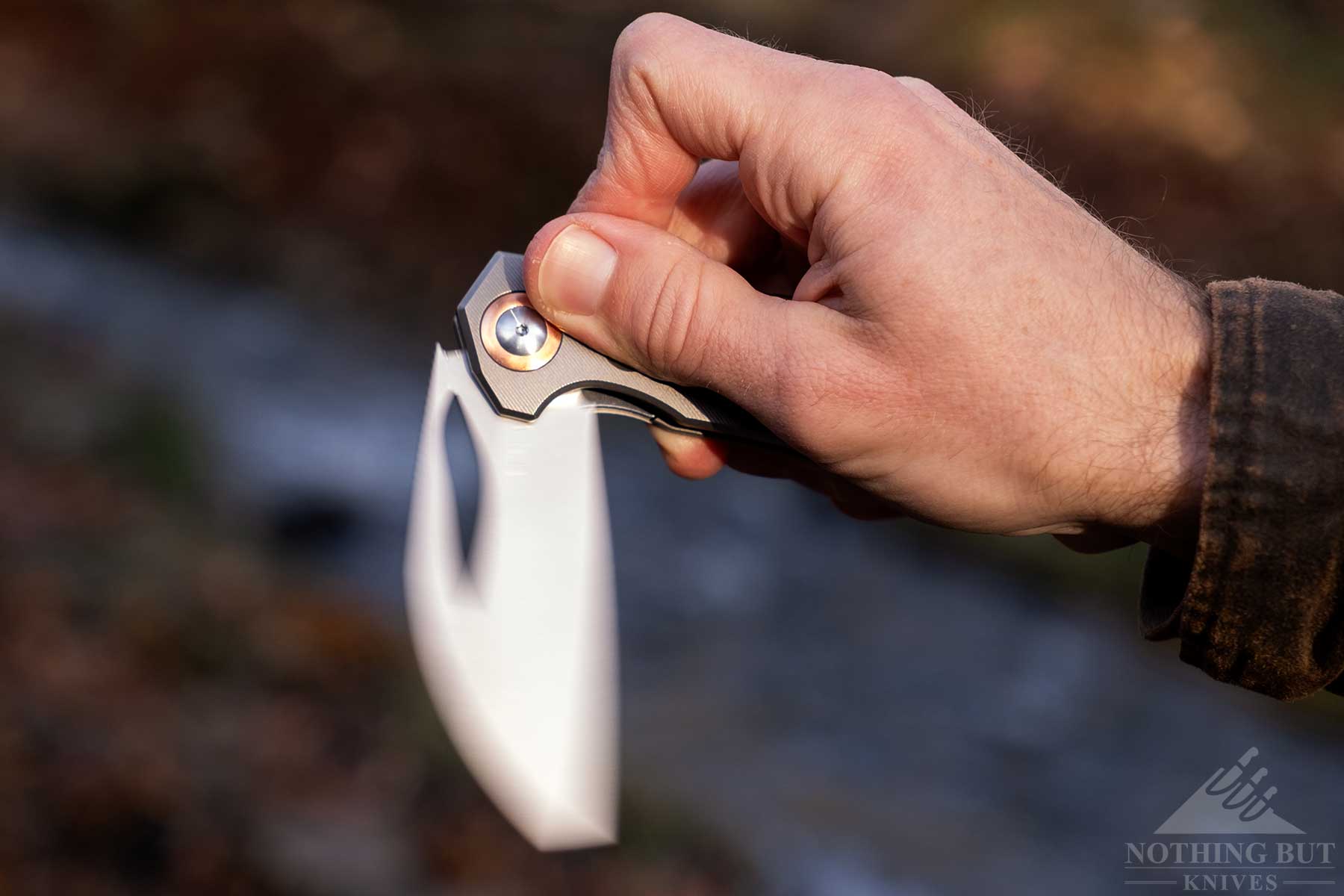
The action is incredible. The detent feels a little strong at first, but it kind of has to be with a blade this large. In fact, Kizer put two stop pins in the handle just to make sure this hefty blade had a rock solid base to flip onto (Something they call the “Snapecho system“, which is catchy).
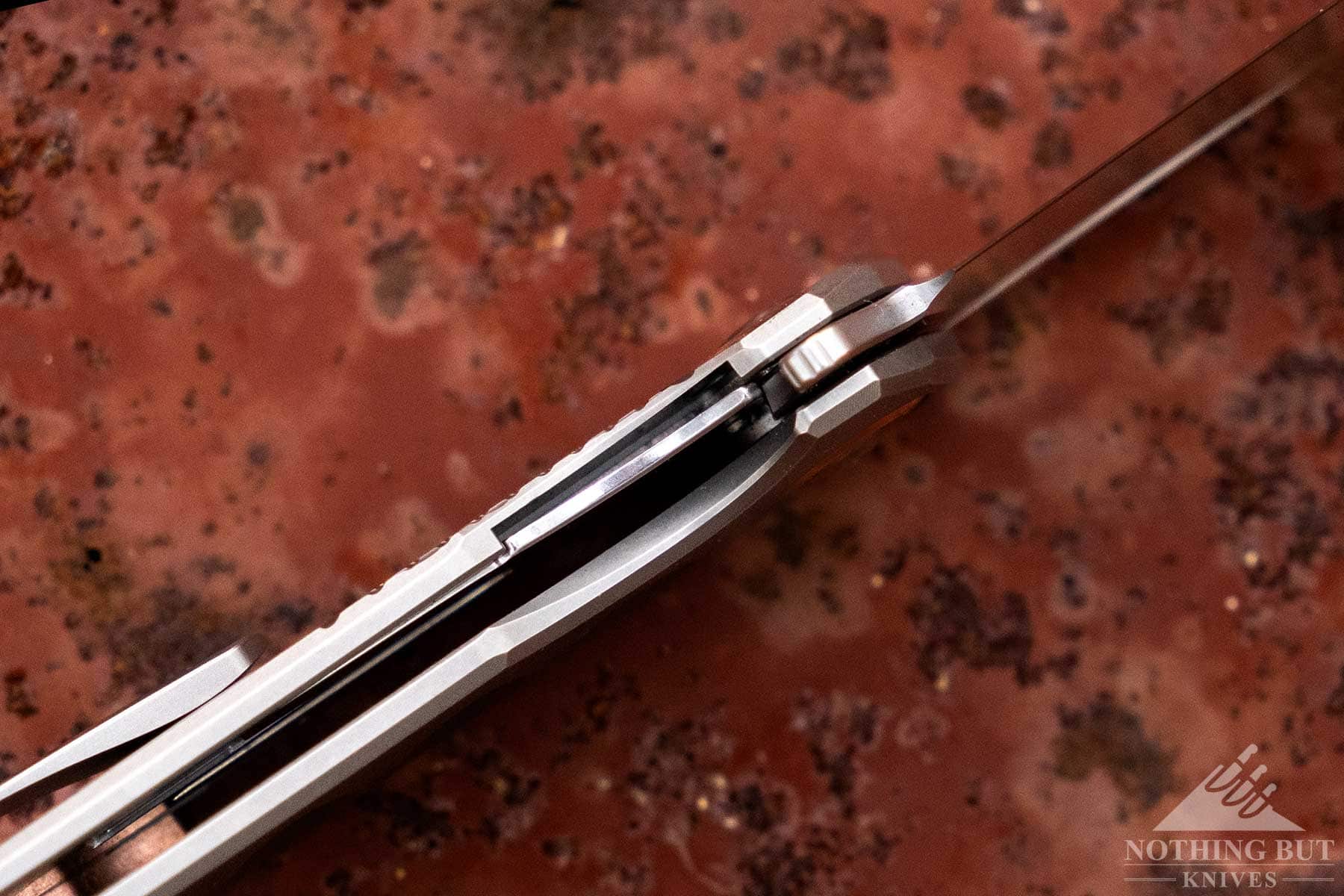
Beyond the detent, though, this thing is butter and has one of the smoothest lock ups I’ve felt in a long time. The liner lock almost feels gentle when I disengage it, so even though it’s really chamfered, it doesn’t bite the thumb at all.
All around this is a fine example of the level of manufacturing acumen Kizer is capable of.
The Handle
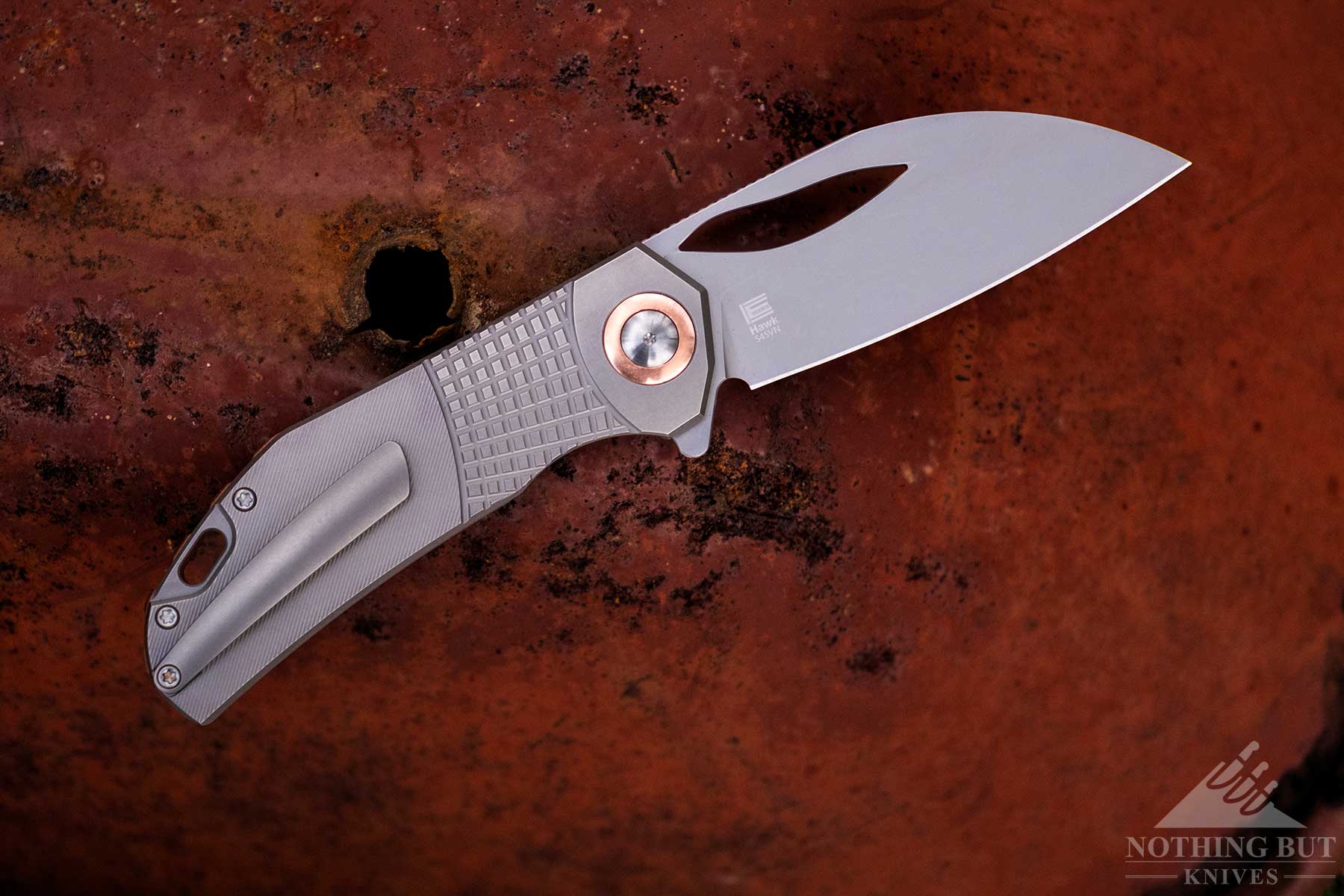
As much as I don’t really like the look of this knife (and the handle styling is a big reason why) I have to admit this is a great handle. There’s a lot of room to grip and the band of heavy texturing saves it from becoming too slippery to manage in wet conditions.
I also like the height of the handle. The meaty palm of my weird hands often does, but I always feel the need to warn people about knives like this. The handle offers a great grip for my hands, but if you have shorter fingers and smaller hands in general, I suspect you’ll end up wrestling with the size more than benefiting from it.
Finicky Nitpicking
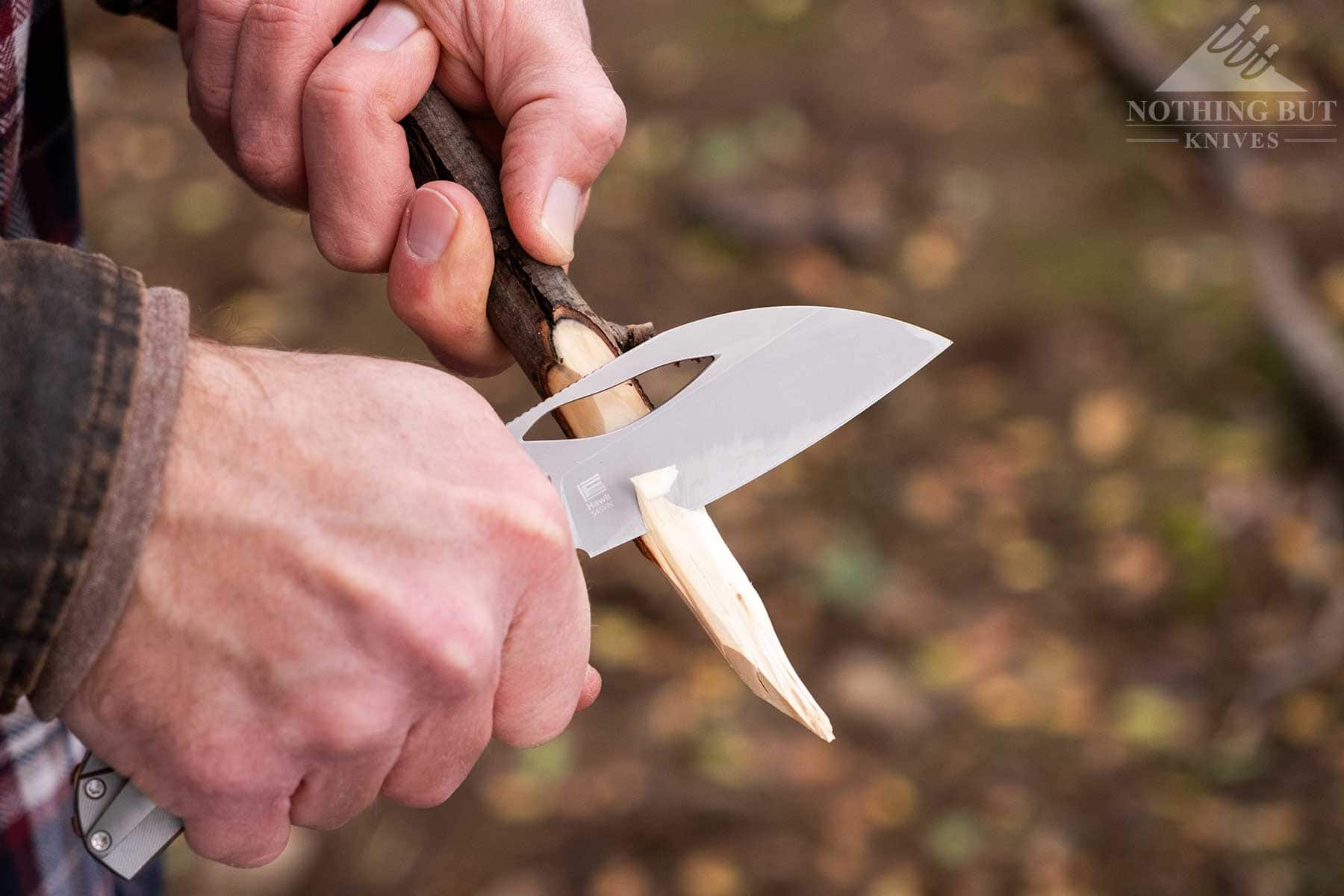
There is something that feels funny about this handle to me. I think it has to do with the relatively flat section in the bottom part. It feels like it butts into my bottom three fingers rather than facilitate any kind of comfortable grip.
I mean that to a small degree. I can get a strong, useful grip on the knife. But it feels like that section needs just a little bit of contouring to give it the feeling that it was giving to the other fingers.
The Blade
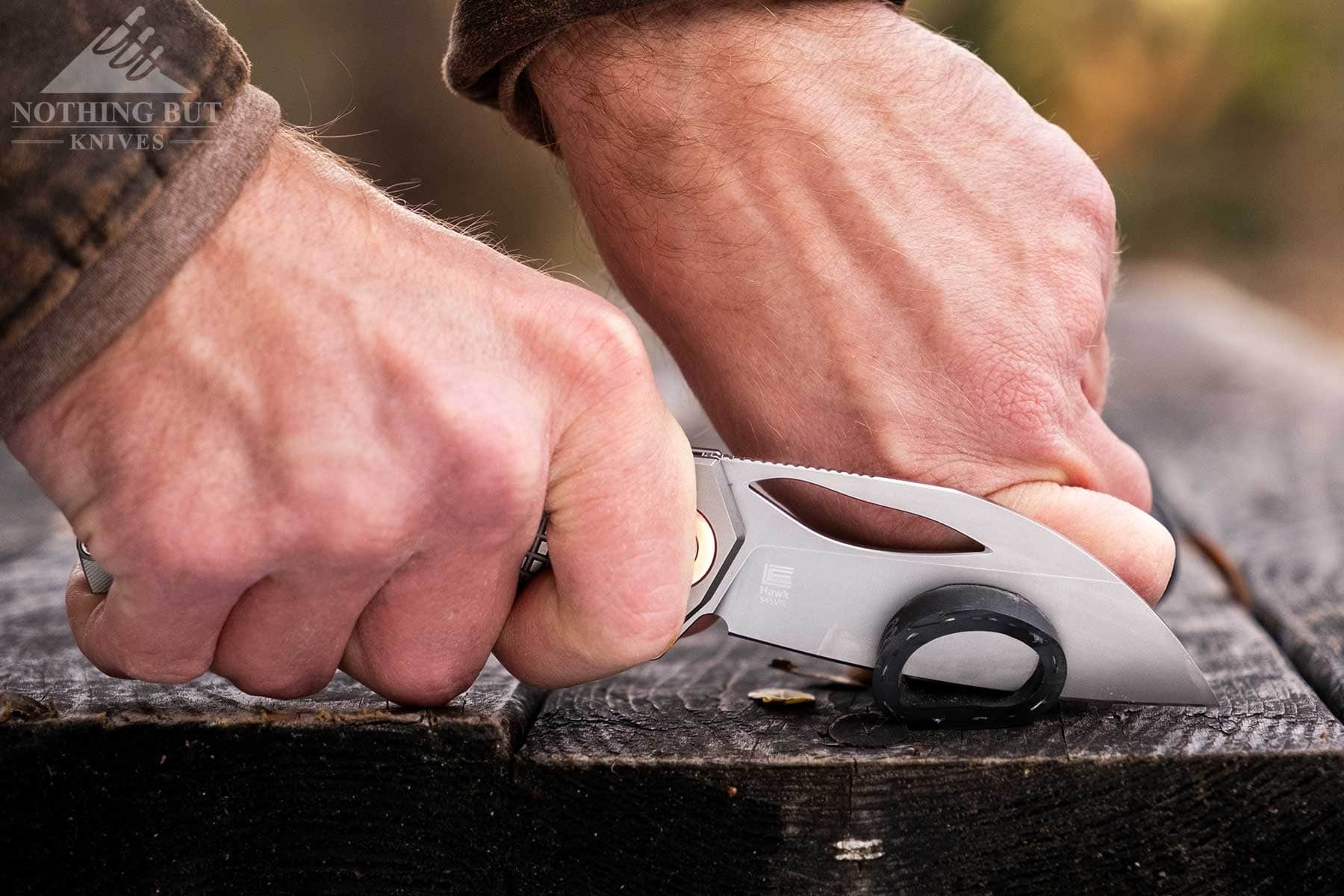
This has stellar edge retention. I broke down boxes, cut rope, and carved wood without doing anything to touch up the edge and it still made smooth cuts on paper.
So this isn’t just a fine cutter. It’s a hard-working knife. It doesn’t exactly look like it, but this is honestly something I’d think about taking out to do some proper, muddy field work.
The edge bites hard and has a smooth follow through. It exemplifies all the reasons I’ve been gravitating toward taller blades lately. The taller the blade (usually) the thinner it is behind the edge. That should lead to smoother cuts and better edge retention in the long run, and for an EDC that’s exactly what I want.
It has the kind of blade that makes breaking down boxes more therapy than chore.
Steel Minutia
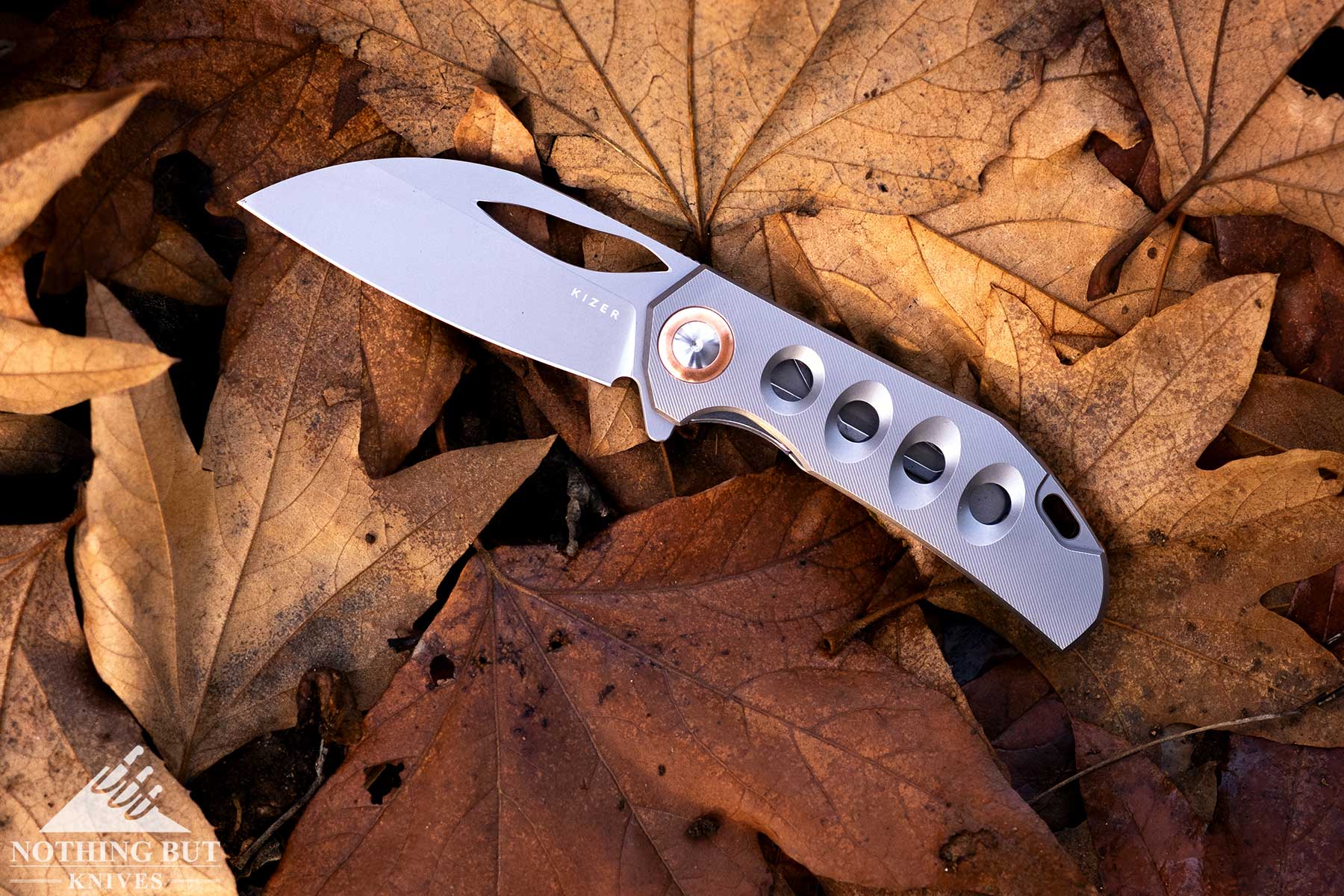
I haven’t had much experience with S45VN steel, but I’m liking it the Hawk so far. On paper it’s supposed to have better edge retention and corrosion resistance than S35VN but ends up being a little less tough. That feels about right to me, although the differences are probably too small for a space cadet like myself to really notice in any reliable detail (I’m not about to do side-by-side testing just to find out a tall S45VN blade can cut rope a couple more times).
But this is good stuff. S45VN makes sense on a high-end EDC meant for heavy-use utility tasks.
The Tight Clip
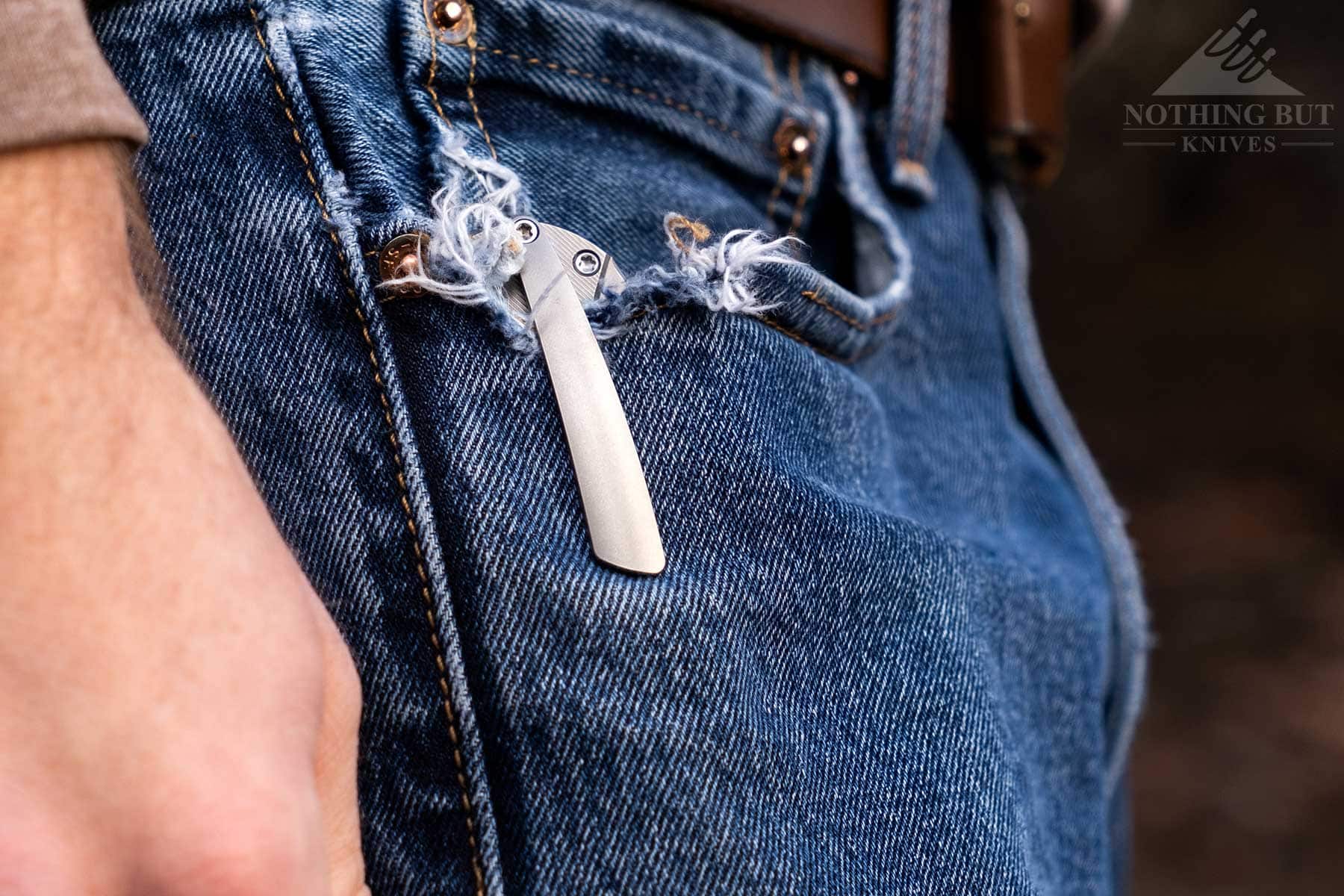
This thing is a pocket terror. It takes a lot of space and the clip doesn’t give much clearance for the pocket fabric and it rides tight.
On the good side, it’s not likely to fall out of the pocket. But it takes me a bit of work to get it riding in the pocket properly. I spent about half day with the handle riding a good inch above the pocket thinking that was as far down as it could go, not realizing the clip had folded the fabric under it, gumming it up before the knife could get fully seated.
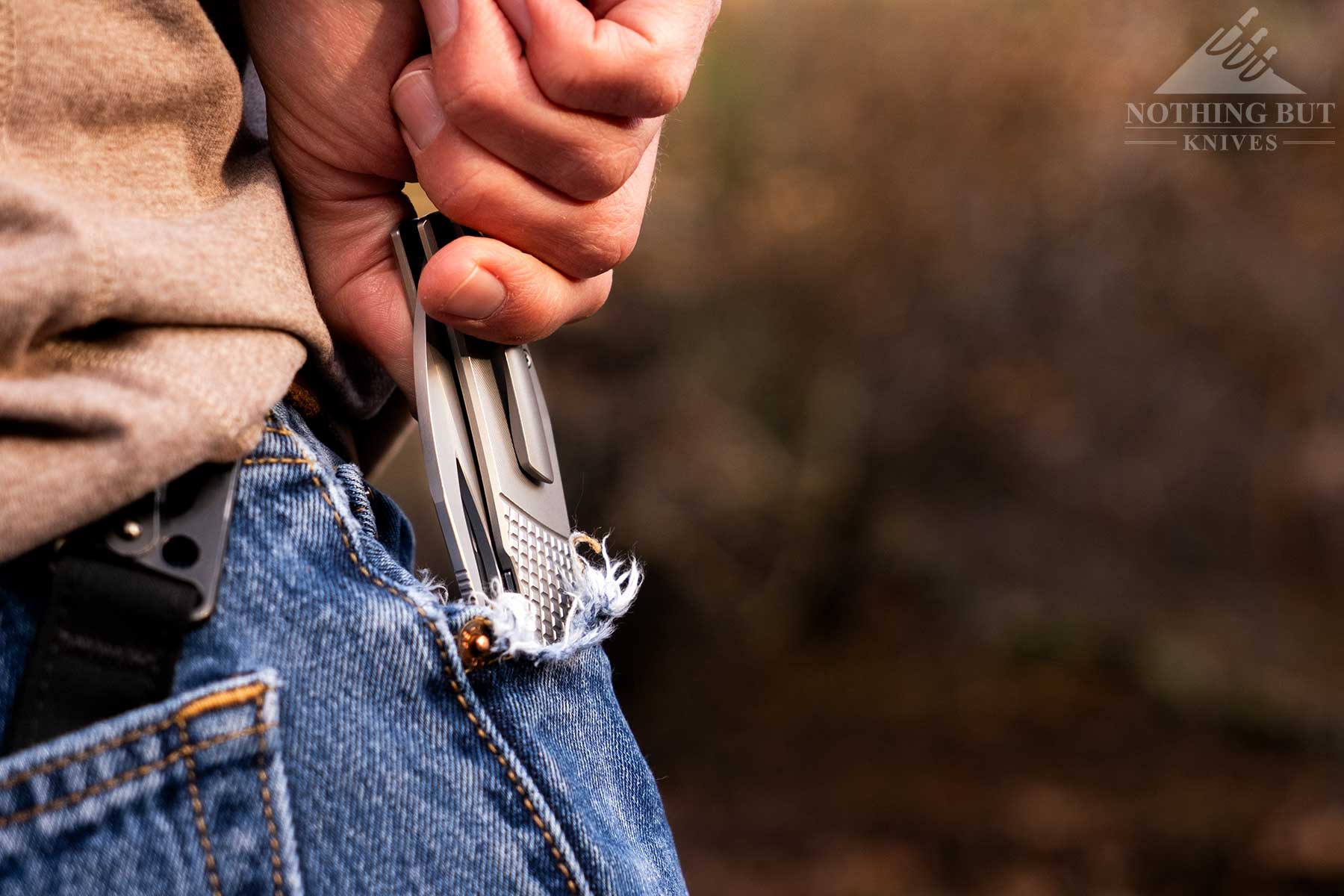
I finally learned to angle the knife into the pocket and shift it back and forth to make sure the fabric straightened out beneath it.
It’s a frustrating problem to have on a knife where everything else, from the cuts to the lock up, feels so smooth and well thought out.
Maybe if they had ground the opening of the clip a little wider it would be easier to work with, but there would still be the issue of it just not having much clearance, and only able to properly seat into some especially thin pants.
And I’m just not a thin-pants guy. I crawl around too much for that.
Comparison and Alternatives
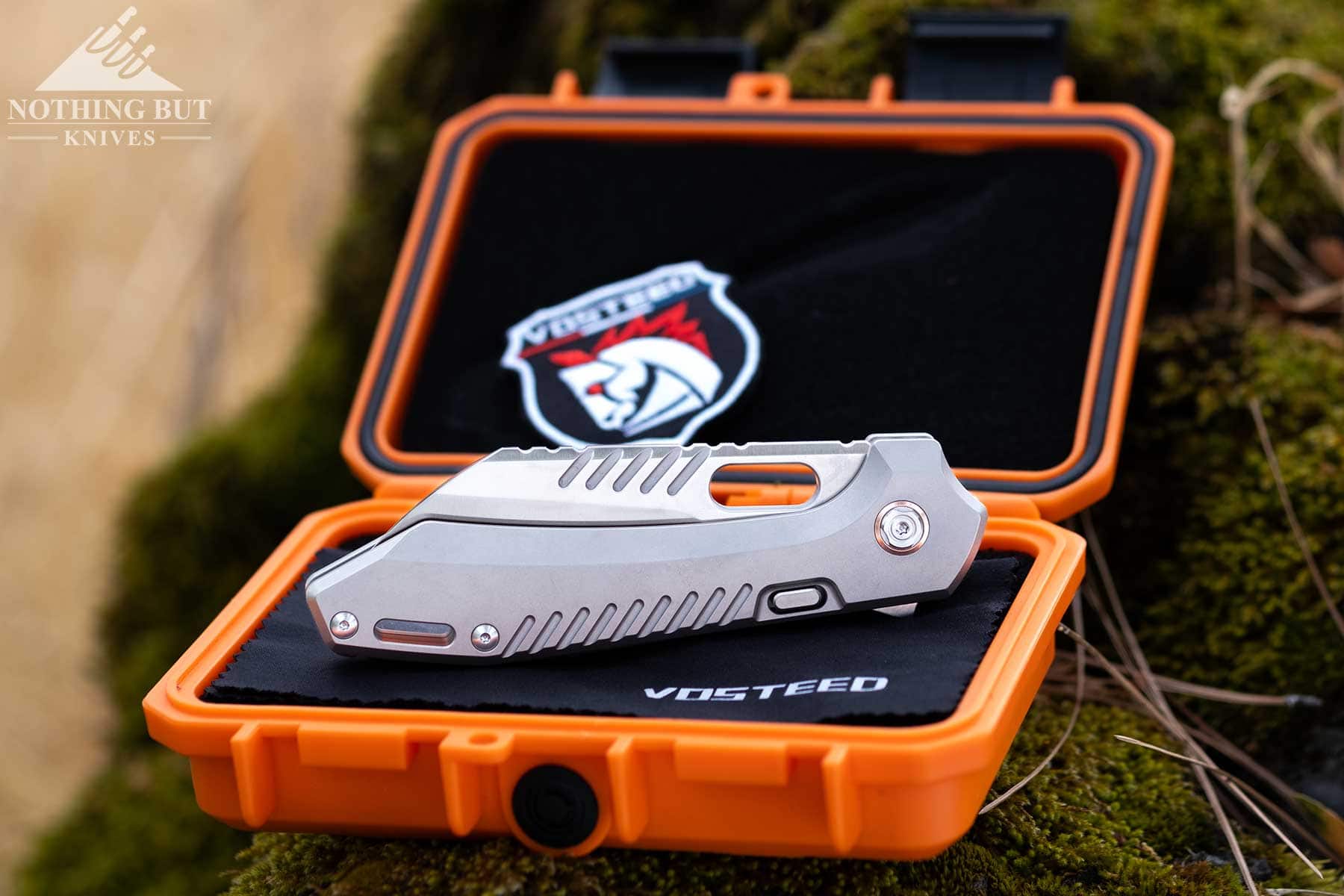
A mid-range, sheepsfoot pocket knife is a fun category to play in. The Hawk makes a good case for itself with the price, but there are some interesting options that offer different ranges of ergos and cutting ability.
The Kizer Sheepdog is, to me, the obvious alternative. If you don’t mind losing some blade point, the Sheepdog has a similar vibe in titanium-handle versions, but also comes in dozens of cheaper versions. It rides easier in the pocket.
The Vosteed RSKaos #AD is smaller with some bizarre blade geometry and a top liner lock that is technically and functionally pretty dang cool. The price nearly doubles, though.
The Kansept Tuckamore is funny looking but feels comparable to me in range of tasks, but the handle is smaller and possibly more manageable for a wider range of hand shapes. The Micarta-handle version is about the same price as well.
The CJRB Caldera is a good option if you want to go way down in price. The blade shape is similar enough, and the AR-RPM9 steel is hard to beat in the $50 range.
This is a Great Knife that I Will Never Carry Again
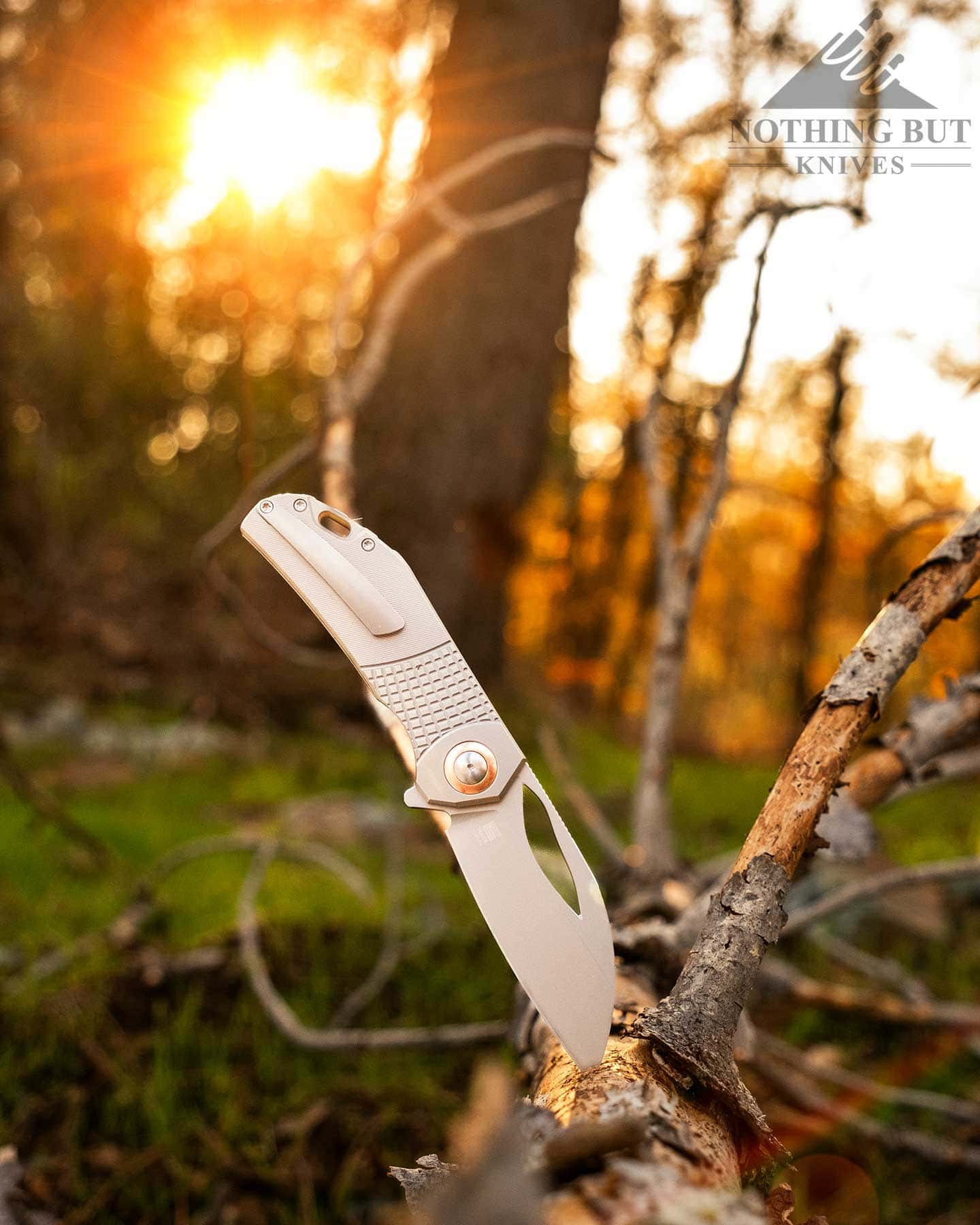
The all-grey titanium look isn’t my thing, but I could almost learn to like using the Kizer Hawk. I love the way it cuts, its shaped well for my hands, and the action is smooth with a solid lock up. I had a great time testing this on increasingly thick and tricky materials.
But that pocket clip is just too much of a hassle to negotiate with. I dread taking the knife out because I knew I would have to excuse myself to the other room while I worked it back into my pants so people didn’t think I was just aggressively adjusting myself.
It’s a shame. Not an uncommon area to cause problems with pocket knives, but still frustrating. The Hawk is still worth having around. I’ll probably take the clip off and put it on home-utility duty, because it’s in a size and shape that makes it uniquely useful for all kinds of things. But it’s not going back in my pocket without some kind of third-party replacement on the pocket clip.
